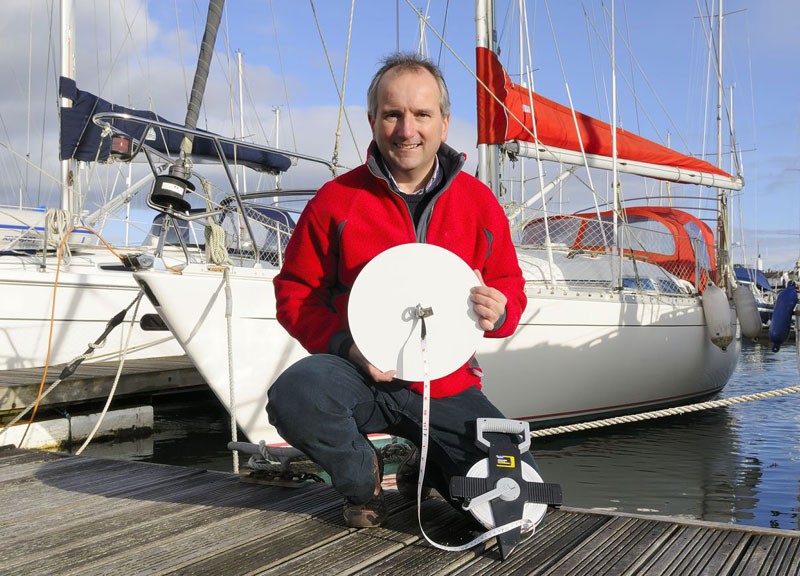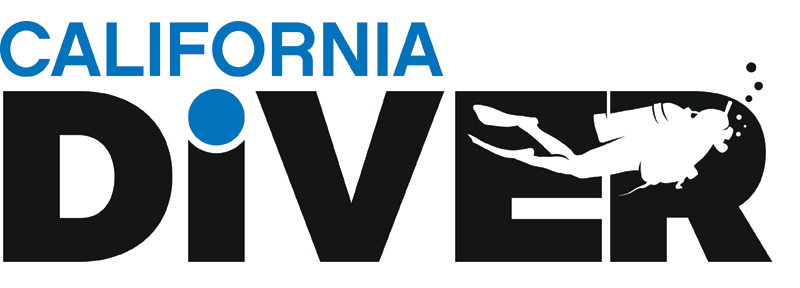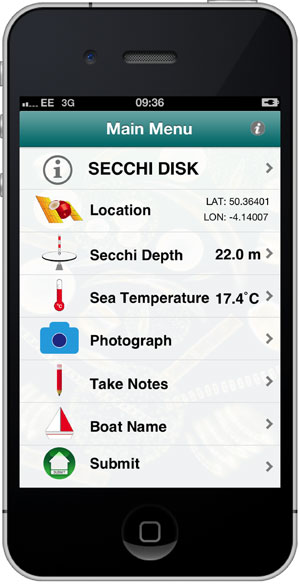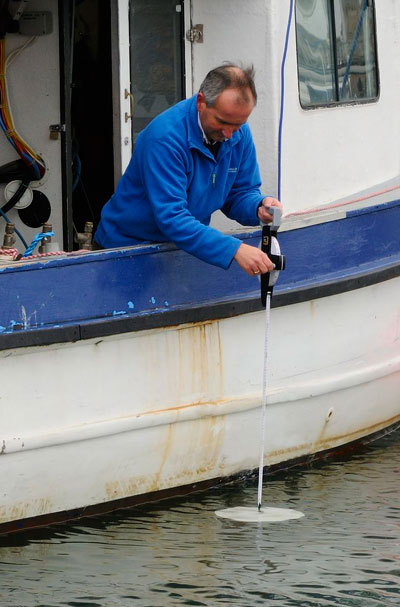 Scuba divers, sailers, boaters, and other water enthusiasts are being encouraged to take part in a unique global study, using a Secchi disk along with a new mobile phone app. The public science project will measure the amount of phytoplankton, minute organisms at the very start of the marine food chain, currently residing in the world’s oceans.
Scuba divers, sailers, boaters, and other water enthusiasts are being encouraged to take part in a unique global study, using a Secchi disk along with a new mobile phone app. The public science project will measure the amount of phytoplankton, minute organisms at the very start of the marine food chain, currently residing in the world’s oceans.
Plankton biologist Dr Richard Kirby, who is leading the study, said: “As the phytoplankton live at the surface of the sea they are being affected by rising sea temperatures due to climate change. A scientific paper published last year suggested the ocean’s plankton population had declined by as much as 40 per cent since 1950. Like all marine creatures, phytoplankton have a preferred optimum sea temperature no matter where they are in the world and we need to know more about how they are changing in order to understand the effects on the ocean’s biology.”
To check the levels of phytoplankton in our oceans, marine experts have developed a free smart phone app for divers, sailors and fishermen to use wherever they are in the world. Because the phytoplankton – each thinner than a strand of human hair – exist at the sea’s surface, mariners can carry out a simple experiment using an easy to make ‘Secchi Disk’.
The Secchi Disk is a plain white disk of 30cm diameter that is attached to a tape measure and weighted from below. It is one of the oldest and simplest marine scientific tools. You can make a Secchi Disk from any material, such as a white bucket lid. The Secchi Disk just needs to be 30cm in diameter and plain white in color.
When a Secchi Disk is lowered vertically into the water from the side of a boat, the depth below the surface at which it just disappears from sight is called the Secchi Depth. The Secchi Depth measures the clarity of the seawater which, away from estuaries and coasts, indicates the amount of phytoplankton at the sea surface. The Secchi disk is attached to a measuring tape to give the exact depth at which it disappears from view, and this depth can then be uploaded to a database using the Secchi app.
Dr Kirby added: “The Secchi Disks are still used by marine scientists to study phytoplankton but there are too few scientists to survey the world’s oceans as well as we would wish. This app enables seafarers around the world to take part in a science project and if we can just get a small percentage of the global population of sailors involved, we can generate a database that will help us understand how life in the oceans is changing. It would help us learn much more about these important organisms at a crucial time when their habitat is altering due to climate change.”
The Secchi app has been developed by Dr Nicholas Outram and Dr Nigel Barlow, from Plymouth University’s School of Computing and Mathematics, and the database will be maintained by Pixalytics Ltd, a company founded by Dr Sam Lavender, an Honorary Reader at the University.
This long-term study began on February 22, 2013. The study has no end date or geographic boundaries in the sea.
For more information on the project, visit the Secchi Disk Study website by clicking here.


